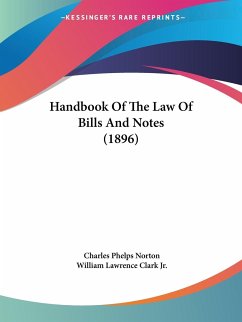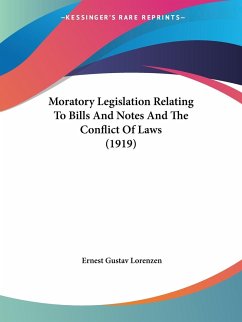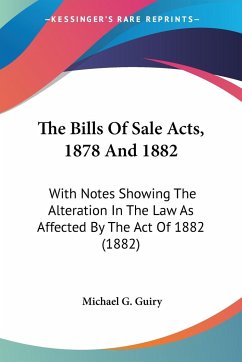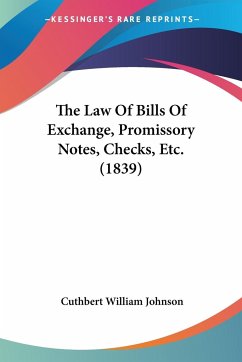
Handbook Of The Law Of Bills And Notes (1896)
Versandkostenfrei!
Versandfertig in 1-2 Wochen
36,99 €
inkl. MwSt.

PAYBACK Punkte
18 °P sammeln!
The Handbook Of The Law Of Bills And Notes is a comprehensive legal guide written by Charles Phelps Norton and published in 1896. This book provides an in-depth analysis of the laws governing bills of exchange, promissory notes, and other negotiable instruments. Norton explores the history and development of these laws, as well as their practical application in modern times.The book is divided into several sections, each covering a specific aspect of the law of bills and notes. These include the nature and characteristics of negotiable instruments, their transfer and negotiation, and the liabi...
The Handbook Of The Law Of Bills And Notes is a comprehensive legal guide written by Charles Phelps Norton and published in 1896. This book provides an in-depth analysis of the laws governing bills of exchange, promissory notes, and other negotiable instruments. Norton explores the history and development of these laws, as well as their practical application in modern times.The book is divided into several sections, each covering a specific aspect of the law of bills and notes. These include the nature and characteristics of negotiable instruments, their transfer and negotiation, and the liability of parties involved in their use. Norton also examines the legal remedies available in cases of dishonor or non-payment, as well as the role of banks and other financial institutions in the use of negotiable instruments.Throughout the book, Norton provides numerous examples and case studies to illustrate the principles and concepts he discusses. He also includes references to relevant legal statutes and court decisions, making this book a valuable resource for lawyers, judges, and other legal professionals.Despite being over a century old, the Handbook Of The Law Of Bills And Notes remains an important reference work in the field of commercial law. Its clear and concise style, combined with its comprehensive coverage of the subject matter, make it an essential resource for anyone seeking to understand the intricacies of negotiable instruments and their legal implications.This scarce antiquarian book is a facsimile reprint of the old original and may contain some imperfections such as library marks and notations. Because we believe this work is culturally important, we have made it available as part of our commitment for protecting, preserving, and promoting the world's literature in affordable, high quality, modern editions, that are true to their original work.












